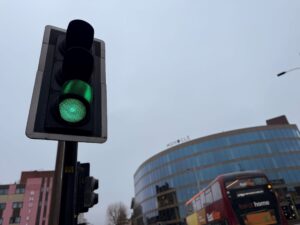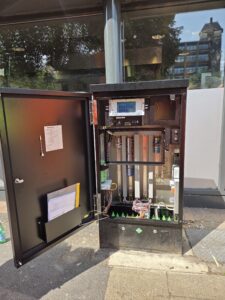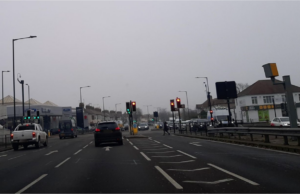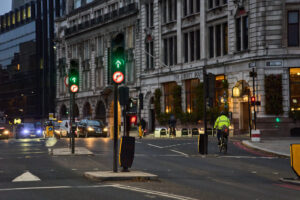A new style Artificial Intelligence traffic signal control is to be trialled at some of the busiest junctions in Cambridge in an attempt to cut congestion and improve air quality.
The 12-month trial of the Vivacity Labs solution will investigate how camera-based sensors and machine learning can be used to optimise traffic signals to improve traffic flow, reduce journey times and help tackle air pollution.
The Greater Cambridge Partnership-funded project forms a key part of a wider package of measures to be discussed by the GCP’s Executive Board later this month.
The report sets out how the GCP can support a green recovery with key investments to clean up the bus fleet and improve the bus network, expand active travel routes, and develop a new parking strategy for the city.
Claire Ruskin, Executive Board Member for the Greater Cambridge Partnership and Chair of the Smart Cambridge Working Group, said, “We know our traffic lights need to be more intelligent and we are finding new technology solutions that can help the way people make their daily journeys.
“These new sensors can monitor different types of road users, and use that data to change traffic flows, potentially helping to cut congestion and improve air quality. We will use the data to inform future projects and interventions.”
The majority of traffic signals across Cambridgeshire currently use fixed algorithms to make decisions about traffic signal operation. It’s intended that using Vivacity’s machine learning technology, the new signals will, over time, learn what works best to manage traffic flows more effectively.
The company says camera-based artificial intelligence sensors are “more able than existing systems” to anonymously identify different types of road users and adjust traffic signal timings accordingly – allowing different modes of transport to be prioritised.
The trial also has the potential to improve air quality by reducing emissions from idling vehicles.
Installation of the sensors began this week and when all the systems have been set-up they will be tested and fine-tuned.
Trials will start in the summer and a report on the initial findings will be available in Spring 2022. The pilot scheme will be trialled at the following junctions:
- Hills Road-Brooklands Avenue
- Hills Road-Cherry Hinton Road
- Cherry Hinton Road-Clifton Road
- Robin Hood corner (Cherry Hinton Road-Queen Edith’s Way)
If the trial proves to be successful, the GCP will consider how further investments in AI traffic signals could be rolled out in the future.
(Picture – Greater Cambridge Partnership)
























